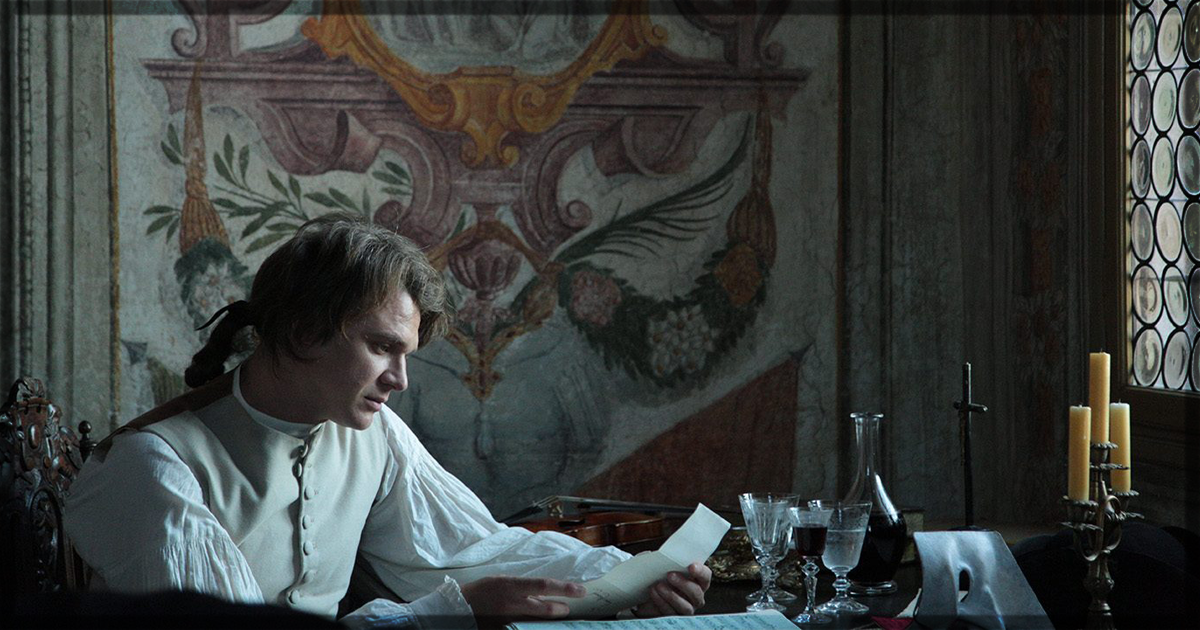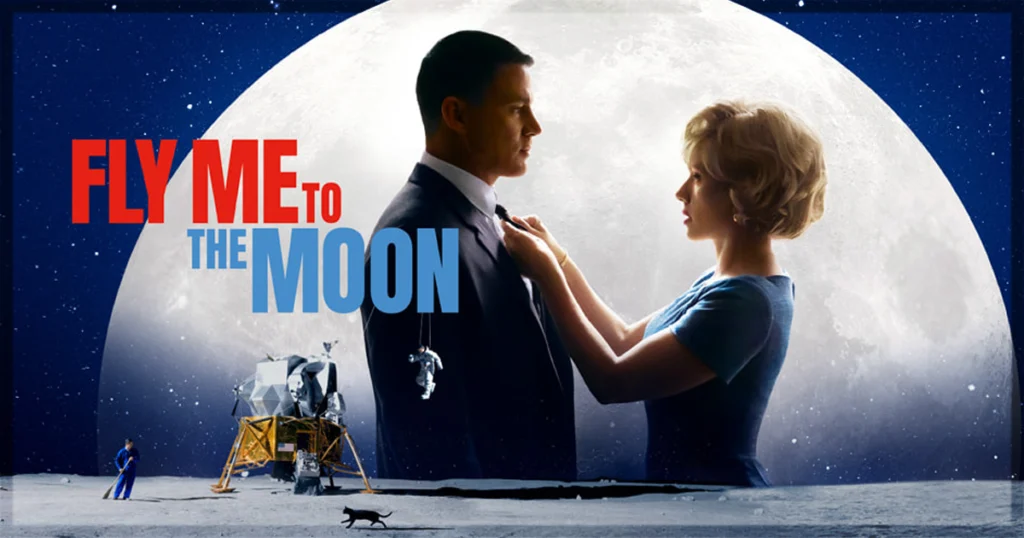Not much is known about Josef Mysliveček – the 18th-century composer at the center of writer and director Petr Václav’s lavish historical biopic The Bohemian – in the English-speaking musical world. It is known he was on good terms with Wolfgang Amadeus Mozart as the two composers vied for recognition in the Habsburg centers of Venice, Prague, and Vienna – their friendship was only tested by a commission that could fulfill either man’s ambition.
His promiscuous love life in famously party-loving Venice could be described as diverse or dissolute, depending on one’s mores, and his many operatic successes and minor duds have largely been overshadowed by one shattering failure – Armida. It is also known that he lost his nose to what he claimed was bone cancer resulting from a carriage accident but, as Leopold Mozart (Wolfgang’s father and tutor, and a musician in his own right) suspected, his facial deformity was likely caused by syphilis and its horrifying treatments at the time. Mysliveček died penniless and alone in Rome in 1781, aged just 44. Today, it is rare to find his name on a concert program; Mozart, on the other hand, is everywhere.
The Bohemian’s dedication to historical detail
The Bohemian is the English translation of his moniker – “Il Boemo” – by which Mysliveček branded himself on the classical music scene, his distinctly Czech influence on Italian opera seria (dramatic opera on classical and historical themes) evident in his compositions. Dialogue in Italian, Czech, and German highlights how multicultural and cosmopolitan the music world was – and still is – as the brightest and best converge on the Habsburg seats of power in a bid for royal patronage and commissions. This world was not – and still is not – a meritocracy: Mozart’s father works for him, just as Mysliveček’s origins as a miller’s son work against him, and the film does not lose sight of class politics without belaboring them.
The style, mood, and pace of The Bohemian is decidedly old-fashioned; its 142 minutes pass unhurriedly, with a simple flashback structure framing the narrative from the point of view of an ailing but still alert Mysliveček who has already lost his nose to the syphilis that will kill him (the makeup team does a sterling job). Within these scenes of composition, political maneuvering, love-making, and glorious opera is a meticulous dedication to historical detail.
Granted, some of those buildings in the external Prague shots could be too recent (neo-Gothic rather than truly Gothic), but the choice to use locations shot and lit well by cinematographer Diego Romero Suarez Llanos, rather than CGI, for many scenes lends the film a lived-in feeling that continues throughout other design choices. For instance, a masked ball sees some in elaborately carved faces and others with simple black circles concealing their identities. Between the pipe smoke, flies, stained linens, and excitement over new fruits, everything conveys the sense of a world before modern hygiene.
Mysliveček’s complicated legacy
Interestingly, and to the film’s immense credit, Václav and lead actor Vojtech Dyk never make Mysliveček an outright hero. His musical adventurousness and liberal attitudes are presented alongside his abuses and shortcomings. There is no divine gift at play, just hard work nurturing talent and passion. The film also dispels the notion of a composer as an isolated, inspired genius by showing Mysliveček’s collaborators and competitors as distinct voices that spur him to try new forms. As famed coloratura soprano Caterina Gabrielli, Barbara Ronchi is Mysliveček’s musical and personal equal, eschewing both stereotypes about diva behavior (already alive and well in the era of the “suitcase aria”) and women’s subservience.
Where The Bohemian really shines is its treatment of music and opera scenes. The opera singers appearing in the film – including world-famous countertenor Philippe Jaroussky – imbue the words and music with full dramatic meaning. The filming of these scenes vibrantly capture the innate theatricality of opera while sticking to the storytelling and musical conventions of the late 1700s – in this regard, The Bohemian outstrips Marie Antoinette and even Amadeus, two other films set roughly at the same time, in celebrating the artistry of those past.
Pre-19th-century opera often gets a reputation for being staid and repetitive compared to the Romantic and avant-garde works that followed, but each da capo aria is a chance to build emotion and drama, not a pause of the plot. It is clear much research and love has gone into the recreation of the sounds of the era, and the effect is as exciting as if these works are being heard for the first time. Much credit goes to Czech early music orchestra Collegium 1704, conducted by its founder Václav Luks, as well as Luks and American musicologist Daniel E. Freeman who both served as the film’s music advisors.
With a reputation for forced narrative arcs and predictability, biopics work best when they cover lesser-known or “forgotten” subjects, especially those from a past before photographs: The Bohemian amply proves this point. This might not be a blockbuster, but with its digital release on all platforms across the USA and Canada following its lengthy festival run, many Czech film awards, and Academy Awards consideration, this lush and lovingly-made picture is worth seeking out.
The Bohemian will play digitally in the US and Canada on July 30, 2024.
Learn more about the film at the official website for the title.


